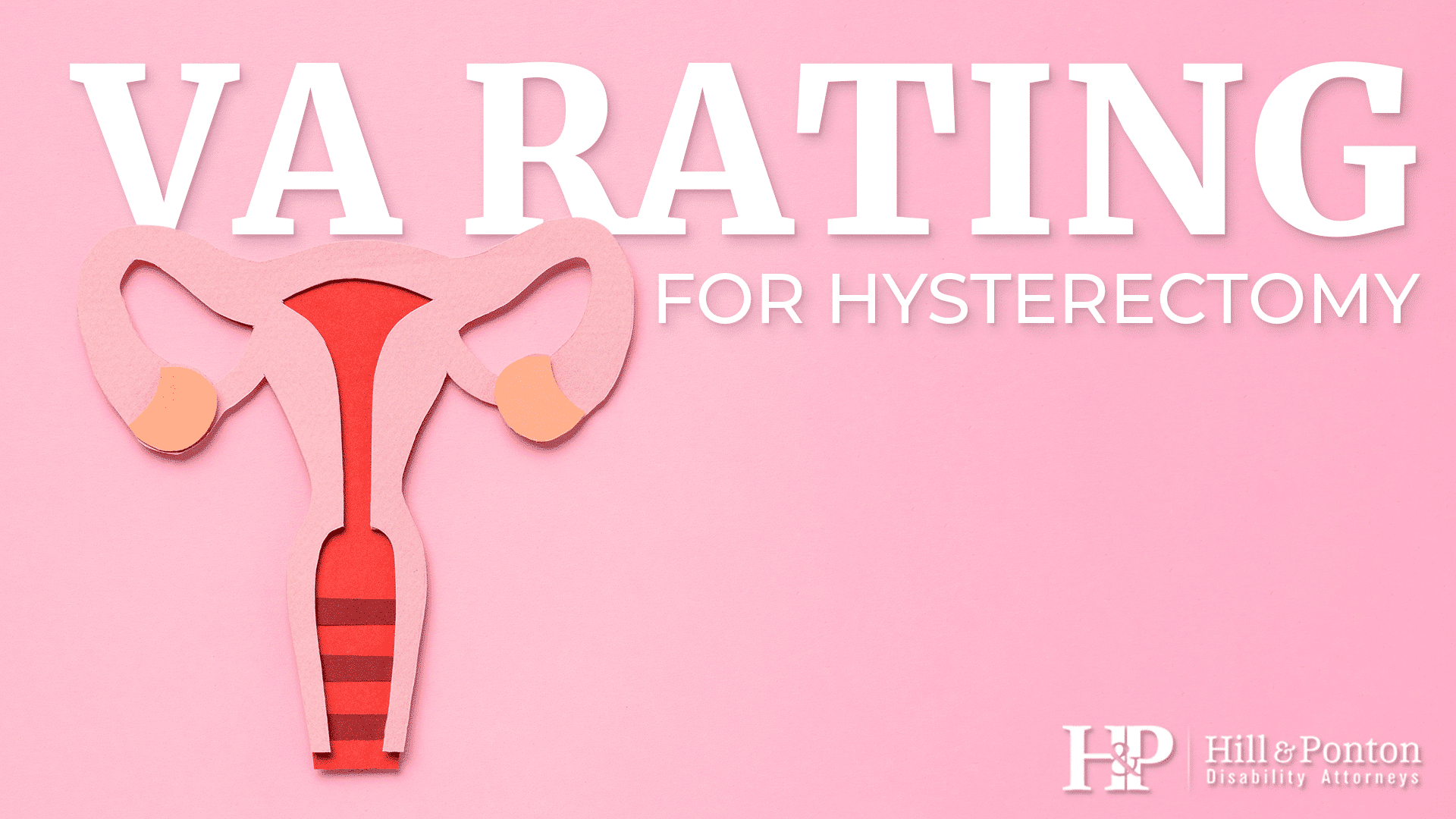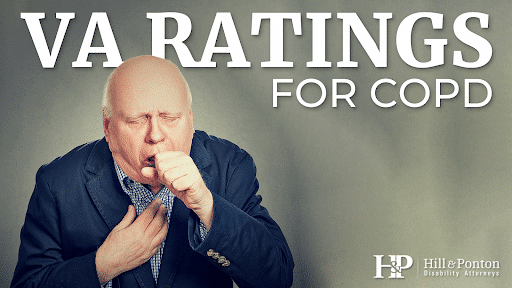Back problems are one of the most common service-connected conditions among veterans. But what many don’t realize is that chronic back pain and spinal disorders can lead to serious complications beyond the spine, including problems with breathing during sleep. One of the most significant of these is sleep apnea.
Sleep apnea is a condition where your breathing repeatedly stops or becomes shallow during sleep. This disruption can lead to extreme fatigue, memory issues, mood disturbances, and even life-threatening heart problems. While sleep apnea is often thought to be a standalone condition, it may be tied to your service-connected back disability in a way the VA should recognize.
Several medical studies and clinical observations suggest that certain types of back injuries, especially those affecting the thoracic spine (the middle back), may disrupt the nerves and muscles that support normal breathing. These disruptions can alter the way your body functions while you sleep, setting the stage for disordered breathing.
The American Academy of Sleep Medicine (AASM) recommends that patients with spinal cord damage be carefully evaluated for sleep apnea, especially when the middle or upper back is involved (AASM, 2023). In addition to cervical (neck) issues, injuries lower down the spine, in the thoracic region, can interfere with key muscle groups used in respiration.
Sleep apnea may not be the first condition that comes to mind after a back injury. But suppose you’re waking up gasping for air, feeling exhausted even after a full night’s rest, or have been diagnosed with sleep apnea after developing serious back issues. In that case, it’s worth looking into whether the two conditions are linked.
How to Establish Secondary Service Connection
If you already have a VA service-connected back condition and now suffer from sleep apnea, you may qualify for secondary service connection. To do this, you’ll need to prove that your back condition, or something related to it, has either caused or aggravated your sleep apnea. To support your claim, the VA requires three specific pieces of evidence:
- A current diagnosis of sleep apnea – This must be confirmed by a polysomnography, also known as a sleep study. It’s not enough to report symptoms, your medical records must include an official diagnosis.
- Proof that your back condition is already service-connected – The back issue must already be recognized by the VA with an assigned disability rating. This proves that the root condition has a verified link to your military service.
- A medical nexus opinion that explains the connection – A medical professional must clearly state that “it is at least as likely as not” that your back condition, or its treatment, has contributed to or worsened your sleep apnea. This statement should be based on your medical history, treatment records, and sound clinical reasoning.
In many cases, this connection is made through medical explanations such as how certain prescribed medications affect breathing, or how complications from a spinal condition can impact airflow during sleep.
Additionally, if your back condition led to significant weight gain, which in turn contributed to sleep apnea, the VA may accept this as an “intermediate step” linking the two. This principle is explained further in Hill & Ponton’s guide on service-connecting obesity.
Establishing this kind of secondary service connection often hinges on getting a strong medical opinion and presenting a well-documented claim. The more clearly you can show the connection, the better your chances of approval.
Supporting Documentation and Evidence
The strength of your secondary claim often depends on the quality and variety of evidence you submit. When it comes to proving that your sleep apnea is secondary to your back condition, thorough documentation can make all the difference. Start with official medical records. These should include:
- Sleep study results that confirm your diagnosis and outline the severity of your condition.
- CPAP prescriptions or documentation of other treatments like BiPAP or supplemental oxygen, showing that your sleep apnea requires ongoing care.
- Medical notes that describe symptoms you’ve experienced such as loud snoring, gasping for air, daytime drowsiness, or interrupted sleep.
Beyond medical files, you can strengthen your claim with additional forms of support, such as:
- Buddy statements from spouses, roommates, or family members who’ve witnessed your sleep problems firsthand. These can provide insight into how your sleep patterns have changed over time.
- Personal impact statements explaining how your life has been affected. These should describe changes in your energy levels, daily functioning, and overall well-being since developing sleep apnea.
- Progression timelines that help connect the dots. If your sleep issues began after your back condition worsened or after you started certain medications, this timeline can help establish causation or aggravation.
It’s also helpful to include any documentation that shows limited mobility or functional changes related to your back condition. This supports claims involving weight gain or reduced physical activity, especially if those changes occurred before your sleep apnea diagnosis.
The goal is to create a complete picture that shows how your service-connected back condition contributed to the development or worsening of your sleep apnea. The more evidence you have, the stronger your case becomes.
Maximizing VA Disability Benefits
Once you’ve established that your sleep apnea is linked to your service-connected back condition, the next step is understanding how the VA rates it and how that could affect your overall monthly compensation. Visit Hill & Ponton’s page on Sleep Apnea VA Ratings to find out more.
Sleep apnea is rated by the VA at 0%, 30%, 50% or 100%, based on how it affects your ability to function and whether it requires medical treatment. Most veterans who use a CPAP machine are rated at 50%. If your sleep apnea is secondary to a service-connected back condition, the two ratings are combined using the VA’s method, not simply added together. To see what your combined rating might look like, use this free VA Disability Calculator.
In some cases, the total impact of your disabilities might keep you from being able to work. If so, you might qualify for Total Disability based on Individual Unemployability (TDIU). This benefit pays at the 100% rate even if your combined rating is less. Learn more about TDIU for Sleep Apnea.
How to Appeal a VA Denial
Even when you provide detailed information, the VA may still deny your claim for sleep apnea as secondary to a back condition. This is frustrating, but keep in mind that a denial isn’t the end of the road and you have options to challenge that decision. Some of the most common reasons the VA denies these claims include:
- No sleep study submitted with the claim
- Lack of a clear medical opinion connecting the two conditions
- VA examiner disagrees with the connection or says the link is “not medically supported”
To fight a denial, you’ll need to build a stronger case with new or additional evidence. Here are a few effective strategies:
- Get a new nexus letter from a private doctor who explains how your back condition or its treatment is related to your sleep apnea.
- Submit updated medical records that show a clearer pattern of progression or symptom overlap.
- Add personal and buddy statements to explain how your condition has changed over time.
- Prepare a detailed timeline that shows how your sleep apnea developed after your back issues began or after starting certain medications.
You don’t have to do this alone. Many veterans choose to work with Veterans Service Organizations (VSOs) or VA-accredited attorneys and agents who understand the claims process and can guide you through the appeals system. Hill & Ponton is exclusively dedicated to assisting disabled veterans like you, with a 96% success rate and no fees until we win. Get your free case evaluation here.
Real-world cases show how veterans have successfully argued that their sleep apnea is connected to a service-connected back condition. These examples also highlight what kind of evidence the VA finds persuasive during the appeals process.
Examples of Obtaining Sleep Apnea Secondary to Back Pain VA Benefits
Case Example: Sleep Apnea Secondary to Lower Back Pain
In VA Decision 1435836, a veteran had an already service-connected low back disability. His condition included degenerative disc disease of the thoracolumbar spine, along with nerve root irritation and pain in both legs. Over time, he developed severe obstructive sleep apnea, which he claimed was secondary to his back condition.
The VA initially denied the claim, partly because one examiner said there was no direct link between lumbar spine problems and upper airway obstruction (the common cause of sleep apnea), but the veteran didn’t stop there.
Instead, he submitted a strong medical opinion from his treating VA physician, who explained that it was “as likely as not” that the veteran’s back issues contributed directly to his sleep apnea. The doctor pointed to several physical factors related to the spine condition that could interfere with breathing during sleep:
- Osteophytes (bone spurs) along the spine can affect posture and airway alignment
- Swelling or inflammation near the retropharyngeal space, a part of the throat behind the airway, can cause narrowing of the airway, especially when lying down
While the Board of Veterans’ Appeals acknowledged that there were conflicting opinions, it also noted that one VA examiner had referred to medical literature suggesting that degenerative joint disease of the lumbar spine could aggravate or worsen sleep apnea.
Because the evidence was balanced, some in favor and some against, the Board applied the “benefit of the doubt” standard; a legal rule that says when the medical evidence is evenly split, the decision should favor the veteran. As a result, the Board granted secondary service connection for sleep apnea.
Case Example: Sleep Apnea Aggravated by Back Pain Medications
In VA Decision 1426481, another veteran also had a service-connected back disability, which caused chronic pain. Over time, he was prescribed several strong medications, including opioids and muscle relaxants, to help manage his symptoms.
Later he was diagnosed with obstructive sleep apnea and claimed that his condition was aggravated by the medications he was taking for his back. The VA again denied his claim, saying there wasn’t enough direct medical proof that the medications had made his sleep apnea worse.
However, the veteran’s appeal included detailed medical records showing that his sleep apnea symptoms had gotten worse after starting the medications. His doctors also confirmed that the medications he was using (particularly those known to cause sedation, slower breathing, and muscle relaxation) could directly affect how his body functioned during sleep.
One physician explained that when certain drugs suppress the central nervous system, they can interfere with normal breathing patterns, which makes existing sleep apnea more severe. This aligned with the veteran’s timeline and treatment history.
After reviewing the full record, the Board of Veterans’ Appeals agreed that the evidence supported a link between the back pain treatment and the worsening of sleep apnea. They granted service connection on the basis of aggravation – not that the medications caused sleep apnea to develop, but that they made an existing condition worse.
These cases show why veterans should not give up after a denial. The right evidence from a treating doctor or specialist can turn a rejected claim into a successful appeal. Whether your sleep apnea was triggered by your back condition or worsened by the medications used to treat it, there’s a valid path toward benefits.
If you’re struggling to get the VA to recognize the connection between your back pain and sleep apnea, legal professionals can argue on your behalf throughout the appeals process. Contact us today and tell us about your case.




